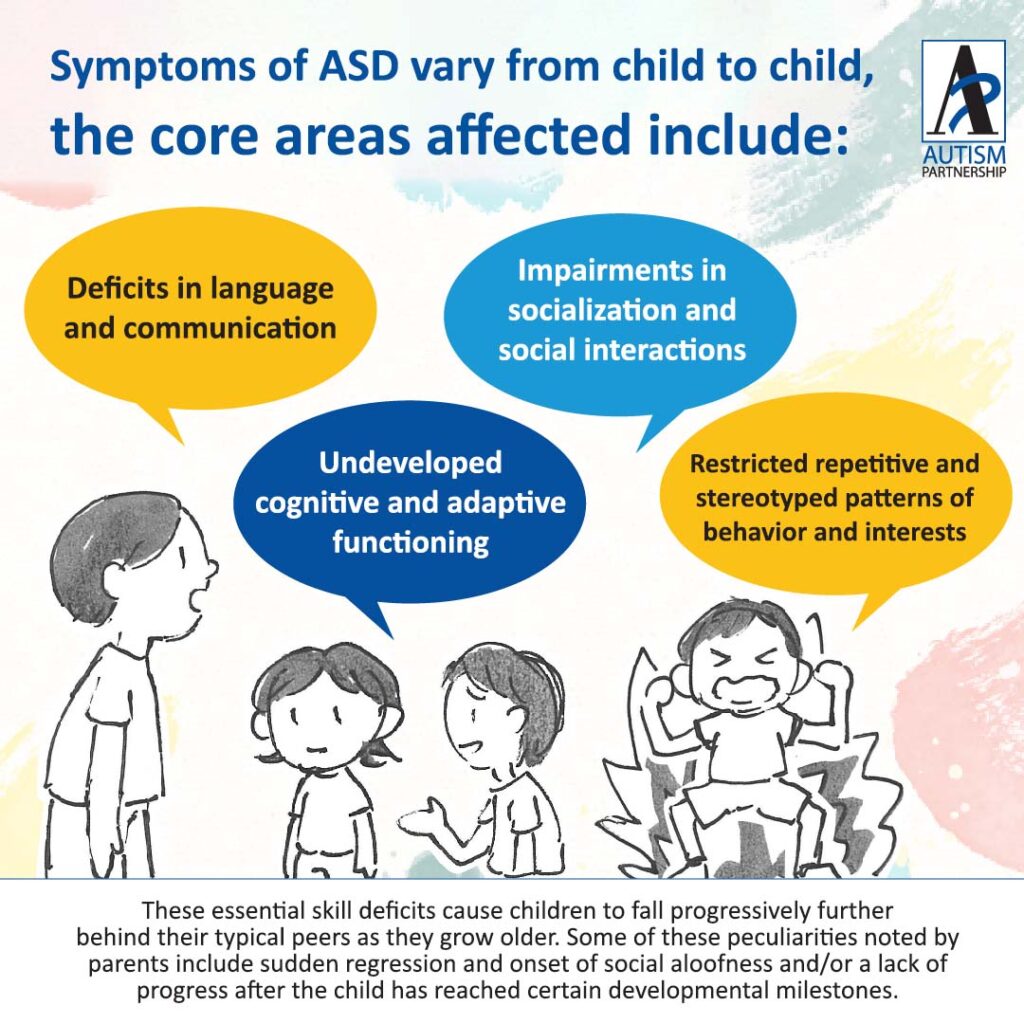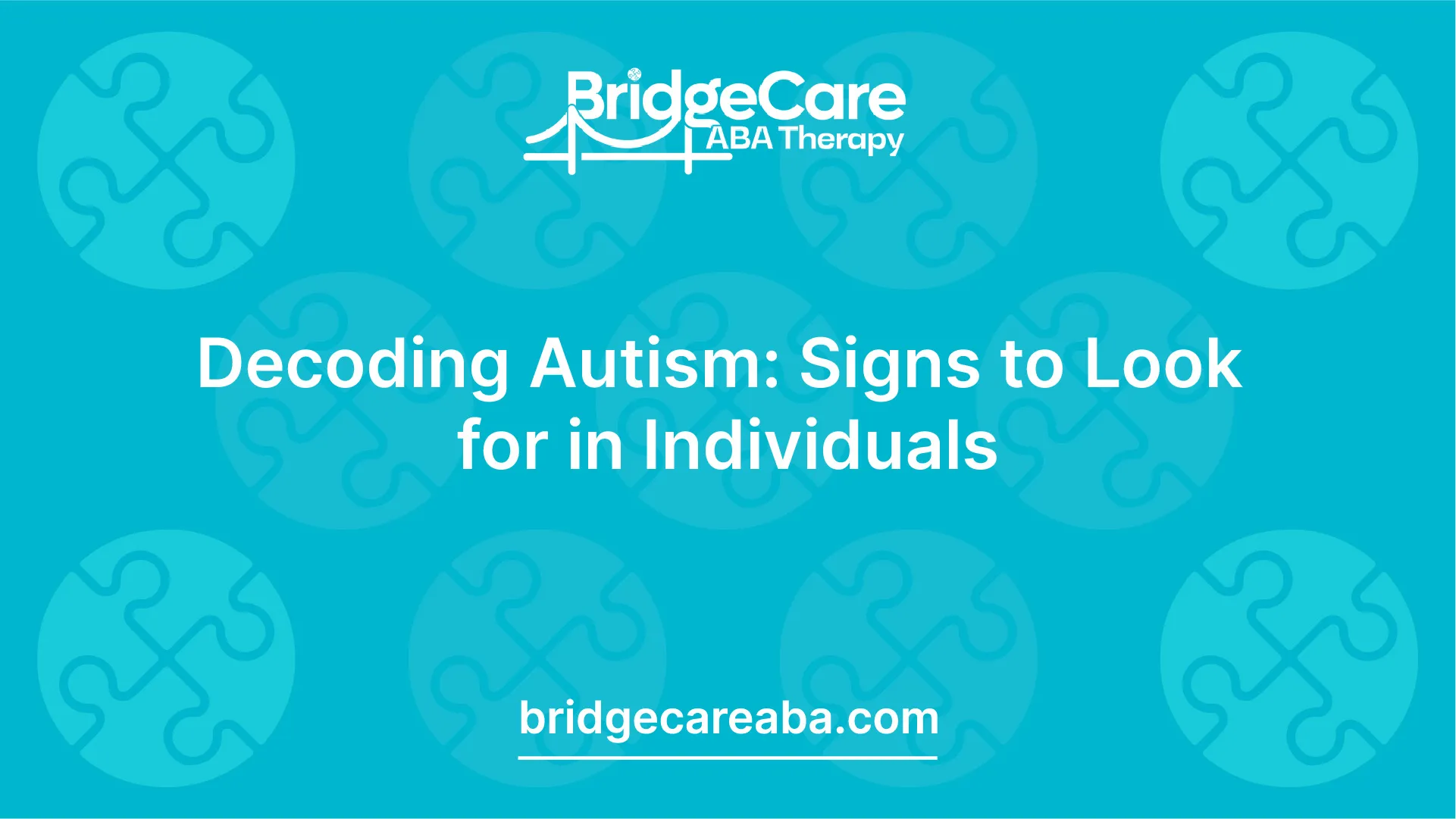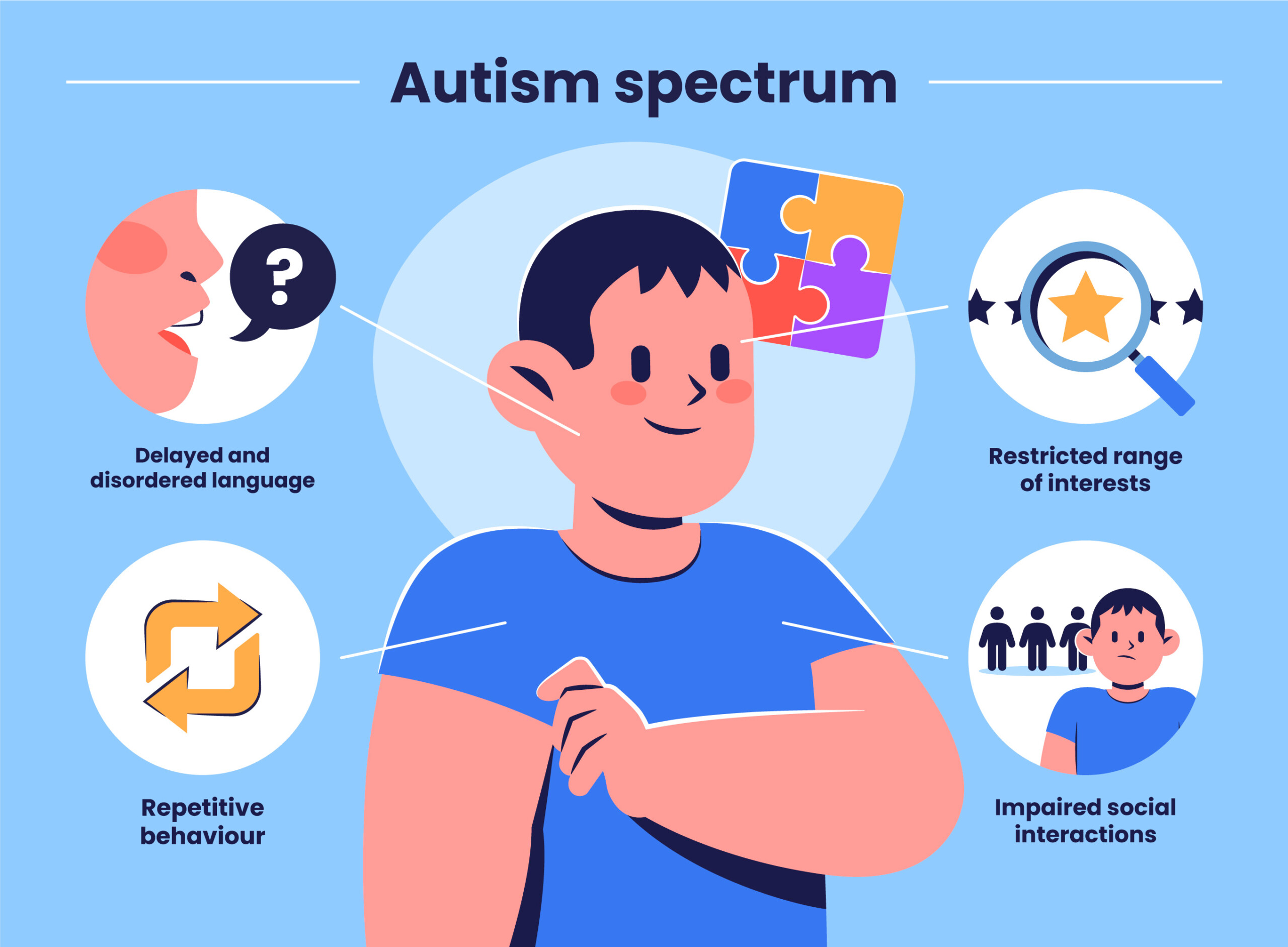The power of early assessment from an Aba Therapist Near Me makes a difference
Trick Indications and Symptoms to Recognize in Individuals With Behavioral Autism
When you come across somebody with behavior autism, acknowledging crucial indicators and signs and symptoms is important. You may observe difficulties in social communications and interaction, as well as a strong need for routines. In addition, sensory sensitivities can lead to overwhelming experiences. Understanding these characteristics can enhance your support and treatments, yet there's even more to reveal concerning just how these behaviors manifest in day-to-day scenarios. Allow's discover what these indicators actually resemble.
Obstacles in Social Interactions
When you interact with a person on the autism spectrum, you might see they have a hard time with social hints and interaction. These challenges can make social interactions really feel frustrating for them.
When they do involve, they could speak about their passions in fantastic detail without discovering if you're interested. Recognizing these difficulties can help you approach interactions with compassion and persistence, cultivating a much more comfortable environment for both of you.
Problem With Verbal and Non-Verbal Communication

Non-verbal communication can be much more challenging. You may see a lack of eye get in touch with or restricted use of motions, which can make communications feel uncomfortable. Facial expressions may not constantly align with the conversation, causing complication about their sensations. Acknowledging these signs is crucial, as it assists you much better assistance and engage with individuals on the autism spectrum. By recognizing their interaction difficulties, you can promote a lot more significant connections and offer a more encouraging setting.
Repeated Actions and Regimens
Interaction difficulties commonly come with various other indications of autism, such as recurring habits and a strong choice for regimens. You might notice that people with autism frequently participate in specific, repetitive actions, like hand-flapping, rocking, or duplicating phrases. These actions can provide convenience and a sense of control in an usually overwhelming world.
Regimens are equally crucial; many individuals thrive when they comply with an organized schedule. You may locate that changes to these routines can lead to considerable distress. If they have a day-to-day ritual of eating breakfast at a specific time or adhering to a particular course to college, any kind of interruption can trigger stress and anxiety.
Acknowledging these patterns helps you understand their actions and give assistance. By suiting their requirement for regular and allowing recurring activities, you can develop a more comfy atmosphere that alleviates their difficulties.
Sensory Sensitivities

Usual Sensory Triggers
Sensory sensitivities can significantly affect everyday life for individuals with autism, as particular stimulations frequently activate frustrating reactions. Typical sensory triggers include loud noises, bright lights, and strong smells. Understanding these triggers can help you manage your setting much better.
Behavior Reactions Clarified
Understanding your behavioral feedbacks to sensory level of sensitivities is essential, as they often reveal just how you connect with the globe. You could observe that specific sounds, lights, or textures bewilder you, bring about anxiousness or discomfort. When faced with these stimulations, you could withdraw, cover your ears, or even respond boldy. These actions aren't just traits; they're your means of dealing with overstimulation. You may also locate on your own seeking particular sensory experiences, like deep pressure or peaceful atmospheres, to assist ground yourself. Acknowledging these patterns helps you recognize your requirements better and can lead exactly how you communicate them to others. By recognizing your sensory sensitivities, you can function in the direction of developing a setting that feels extra workable and comfortable for you.
Coping Techniques Introduction
Identifying your sensory level of sensitivities is just the very first step; currently it's time to check out coping methods that can help you take care of those experiences properly. Begin by producing a sensory toolkit tailored to your requirements. Establishing an organized regimen can likewise supply predictability, minimizing stress and anxiety around sensory overload.
Restricted Interests and Emphasis
While several people establish a variety of passions, those with autism typically demonstrate restricted interests and an extreme concentrate on certain subjects. You may discover that someone with autism can invest hours diving right into their preferred topic, whether it's a particular type of train, a details flick, or a clinical concept. This intense focus isn't just a hobby; it can end up being a central part of their identification and social interactions.
You may discover that discussions focus on these interests, and they may have a hard time to take part in wider subjects. For them, these concentrated rate of interests provide comfort and a sense of proficiency. While it is necessary to motivate exploration of new topics, respecting their enthusiasms is similarly vital. By recognizing and acknowledging these restricted interests, you can cultivate an encouraging environment where they feel valued and understood, permitting for even more purposeful connections and interactions.
Psychological Regulation Troubles
People with autism typically encounter difficulties in emotional policy, which can be affected by their extreme emphasis on certain interests. You might see that when an individual is deeply taken part in a favored activity, they can experience solid emotions, whether exhilaration or irritation. This index strength in some cases makes it difficult for them to move gears or handle their feelings when points don't go as prepared.

Irregularity in Developmental Milestones
When it comes to developmental landmarks, you'll observe that people with autism commonly reveal a broad array of irregularity. Some may strike landmarks on time, while others could lag behind or progress at a various rate. As an example, you could see a kid excel in language abilities however struggle with social communications. This disparity can be complex, as traditional criteria don't constantly use.
It's vital to recognize that each person's trip is one-of-a-kind. Some might create complicated skills early, just to deal with difficulties in the future. Others could take longer to attain fundamental milestones however after that grow in particular locations. Observing these patterns can aid you recognize their staminas and requires much better.
Frequently Asked Questions
How Is Autism Diagnosed in Children and Adults?
To identify autism in grownups and kids, professionals review habits, interaction abilities, and social interactions. If an individual satisfies the criteria for autism spectrum problem., they frequently use standardized tests, meetings, and monitorings to determine.
Are There Various Types of Autism Range Disorders?
Yes, there are various kinds of autism range disorders, consisting of Asperger's syndrome and pervasive redirected here developing disorder-not or else defined. Each kind differs in intensity and features, so understanding these distinctions can help you far better assistance people with autism.
What Therapies Are Efficient for People With Autism?
When taking into consideration efficient treatments for people with autism, you'll locate options like Applied Habits Analysis, speech therapy, and job-related therapy. Each strategy can assist enhance interaction, social abilities, and daily working customized to private needs.
Can People With Autism Lead Independent Lives?
Yes, people with autism can lead independent lives. With the best assistance, abilities training, and sources, you can help them develop self-sufficiency, take care of day-to-day tasks, and flourish in various atmospheres, fostering their self-reliance.
Exactly How Can Families Assistance Enjoyed Ones With Autism?
You can sustain your loved ones with autism by producing a structured environment, motivating their rate of interests, practicing perseverance, promoting interaction, and promoting social skills. Celebrate their achievements, regardless of just how little, and develop a helpful area.
Although many individuals on the autism spectrum can comprehend and use language, they commonly deal with considerable challenges with both verbal and non-verbal interaction. Acknowledging these indications is crucial, as it helps you much better assistance and involve with individuals on the autism spectrum. You may observe that people with autism frequently engage in particular, repeated activities, like hand-flapping, shaking, or duplicating expressions.Sensory level of sensitivities can significantly affect day-to-day life for individuals with autism, as certain stimulations often activate frustrating responses.When it comes to developing turning points, you'll discover that individuals with autism often show a official source vast range of variability.